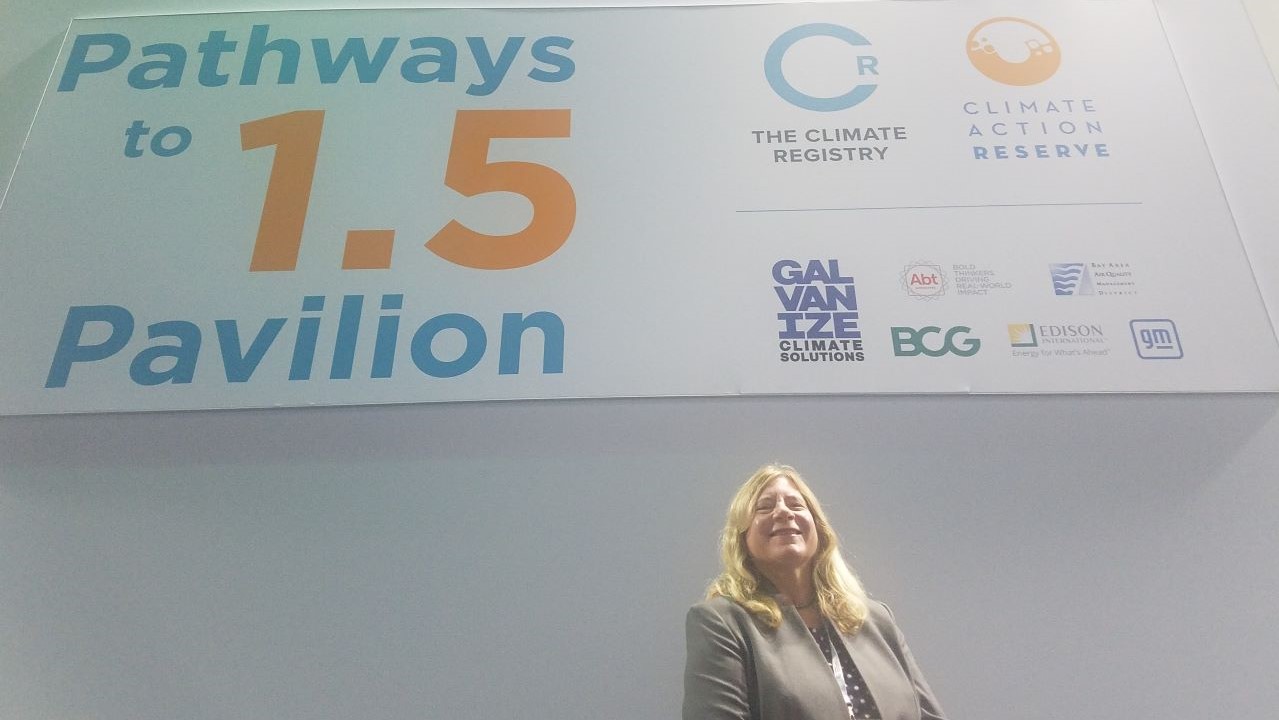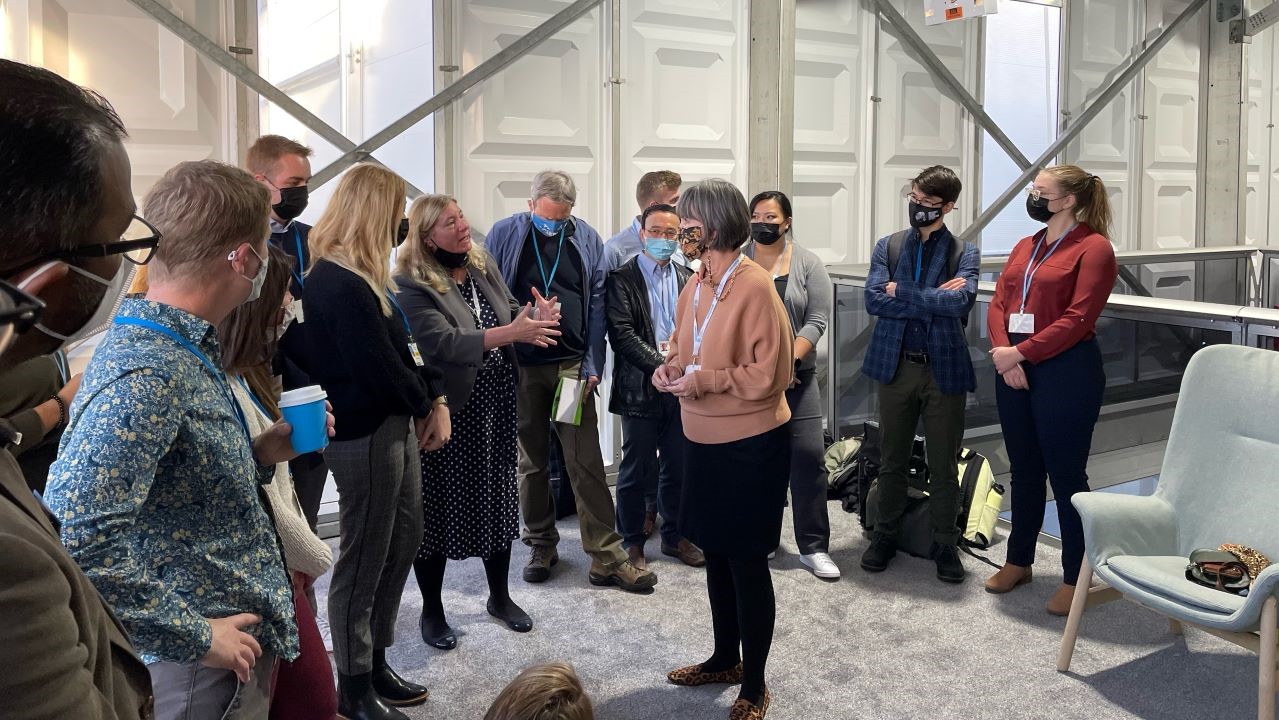
The global climate summit, also called COP26, ended on Saturday, November 13, 2021. Although we discussed all that resulted from the summit at the free webinar I hosted on Wednesday, November 17, I wanted to take a moment to detail the very important progress it has brought, both within formal negotiations among attending countries and leaders, and beyond.
The world’s attention is now focused on the urgency of limiting warming to 1.5 degrees Celsius—a goal that is currently on life support. In particular, our eyes are on the industries most in need of a rapid energy transition so that we can get as close as possible to the global objective of limiting warming to 1.5 degrees Celsius. That means we must be laser-focused on electrifying everything that we can, as fast as we can, and curbing carbon emissions in the road transport, steel manufacturing, and agricultural sectors, among others.
What we should be celebrating
The global climate summit has resulted in some major initiatives. Based on negotiations in Glasgow: 130 countries vowed to halt deforestation by 2030; 105 countries joined a methane pledge led by the European Union and the United States to reduce methane emissions 30 percent by 2030; and the United States and China, the world’s two biggest emitters, have also pledged to work together on climate action, despite their other significant disagreements. Additionally, COP26 resulted in a major step forward for increasing finance from developed countries to developing countries, calling for a doubling in funding available for adaptation, a key ask of every developing nation.

For the first time ever, the Glasgow Climate Pact—the final and official global climate agreement—explicitly states the importance of phasing down unabated coal power. And finalizing the Pact was certainly not dull. During the final hours of the global climate summit, India and China took action to water down some of the language in the coal-specific portion of the Pact, successfully changing the statement from saying “phasing out coal” to “phasing down coal.” But to the rest of the world, these monumental pledges that cut down on global greenhouse gas emissions from coal power further signaled the beginning of the end to fossil fuels.
Where there’s room for growth
Although everyone should want to help create a world with cleaner air and water, healthier communities, and cheaper renewable energy that will benefit generations to come, climate change commitments can be incredibly contentious. At this year’s climate summit, the “Loss and Damage” priority area was one of the most debated, and resulted in outraged interventions before the UNFCCC from many dozens of under-resourced nations.
The core idea behind loss and damage funding is that rich nations should compensate under-resourced countries for the human and economic costs caused by the rich countries’ emissions and carbon footprints. Before, during, and now after the summit, the Global South had issued a clarion call: The nations and communities that contribute the least to climate change are also the ones who bear the brunt of the loss and damage caused by that climate change. Moving forward, it is imperative that these countries receive the financial and material support needed to effectively respond to the climate emergencies they are facing.
As COP26 convened, the world was following a disastrous pathway to warming 2.7 degrees Celsius. Thanks to the progress made in Glasgow, the summit ended with the world on a path to just 1.8 degrees Celsius of warming, according to the International Energy Agency. Now, the next miles on the road we travel must be marked with more action and more ambition—on finance, equity, ensuring that 50 percent of each country’s targets are met by 2030, and that we’re on track to reach net-zero by 2050.
Future-focused action
COP26 has made major steps, but it has left us still far short of where we need to be, as greenhouse gas emissions are still rising every year. To make up for these shortcomings, all countries should agree to put forward by late 2022 more ambitious pledges for how they will cut emissions by 2030. There is so much work needed over the next 12 months ahead of COP27 in Egypt, particularly the work on finance, which will be crucial to unlock investments that will help the Global South respond to the climate emergency.

Criticism of the summit is rampant, with different people expressing frustration over gaps in various climate commitments. But I can’t help but think: What would have happened to projected global warming, to ongoing and projected climate crises, if there had been no international treaties and no climate talks? The United Nations climate action process is vital and necessary because it forces all countries to act simultaneously and thus creates much larger collective action. Essentially, these climate action commitments have built out emissions-reducing technologies at the global scale.
Glasgow felt like a clear turning point to me. Never at a summit has there been such an acknowledgement of the injustice faced by under-resourced countries because of a problem caused by rich nations like the U.S., UK, and EU. The summit directly confronts world leaders with clear evidence of their failure to use the science, resources, and tools that have been at their disposal for decades to limit climate crises for their own nations and the rest of the world as a whole.
Now, thanks to COP26, those global leaders have agreed to craft even more ambitious plans within the next year, particularly to get larger sums of finance flowing to the Global South. There is hope, and there is much work to be done. All nations must honor their pledges, but I believe if those pledges are accountably implemented, we will continue to see a measurable impact on climate and clean energy progress.
Still have more questions about all that happened at COP26 in Glasgow? Sit down virtually with me and special guest Patrick Hamilton, Director of Climate Change, Energy, and the Environment at the Science Museum of Minnesota, to watch or listen to the recording from my November 17 webinar debriefing the global climate summit.
